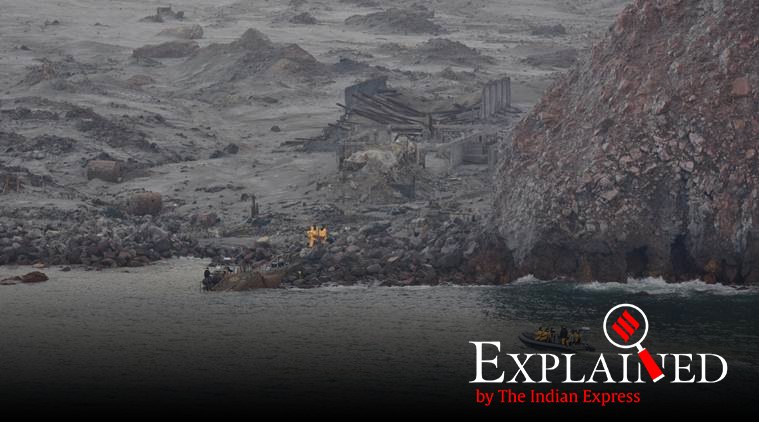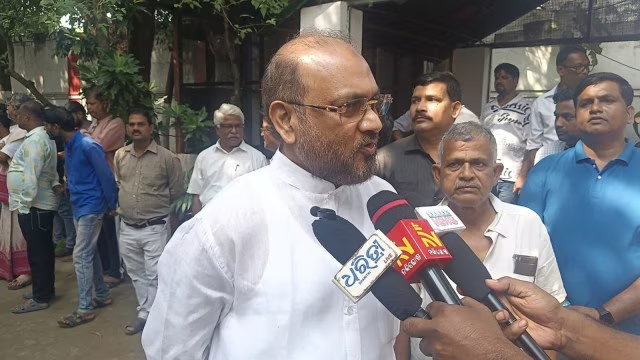Explained: Why some Maori feel the NZ volcano disaster was a form of divine retribution
Several media reports have quoted the Maori as saying they had been living in fear of the ancestor’s rage at the relentless tourist tours to the island.
 This photo released by the New Zealand Defence Force shows an operation to recover bodies from White Island after a volcanic eruption in Whakatane, New Zealand, Friday, December 13, 2019. (New Zealand Defence Force via AP)
This photo released by the New Zealand Defence Force shows an operation to recover bodies from White Island after a volcanic eruption in Whakatane, New Zealand, Friday, December 13, 2019. (New Zealand Defence Force via AP)
As the toll in the New Zealand volcano disaster climbed to 16 with the death of an injured Australian man admitted to a Sydney hospital on Sunday (December 15), unease and divisions grew over the future of White Island, a tourism milch cow that is also an important part of the sacred heritage of the country’s original Maori inhabitants.
Reporters have descended from all over the world in the towns of Whakatane and Tauranga on New Zealand’s North Island — the two towns nearest to the island of Whakaari (White Island) in the Bay of Plenty.
Many have reported what the Maori have told them: that the local tribe of Ngati Awa consider Whakaari to be a living ancestor, and that it is wrong for anyone — local or tourist — to stomp on its sacred soil.
While New Zealand is a volcanic country, and scientists have recorded that Whakaari had been showing signs of volatility for several weeks leading up to the eruption that took place on December 9, several media reports have quoted the Maori as saying they had been living in fear of the ancestor’s rage at the relentless tourist tours to the island.
To these Maori, the eruption appears as a sign of Whakaari’s annoyance — “she”, as they refer to the volcano, had reached the end of her patience with people walking up and down her body, and decided to give them a taste of her anger.
Hinepare Tawa, 32, a resident of Whakatane, told ‘The Observer’ of the UK: “My belief is that Whakaari is a living being, an ancestor, and I don’t believe she is a person to be disturbed. If the island was closed I wouldn’t be too worried about it because I really have a problem with capitalising on nature.”
 Tourists on a boat look at the eruption of the volcano on White Island, New Zealand. (Michael Schade via AP, File)
Tourists on a boat look at the eruption of the volcano on White Island, New Zealand. (Michael Schade via AP, File)
Even so, tourism is critical to the economy of towns like Whakatane, located in one of New Zealand’s poorer regions. The socio-economic deprivation of the region around the Bay of Plenty was depicted in New Zealand filmmaker Taika David Waititi’s 2010 blockbuster ‘Boy’.
The privately administered tours to the island of Whakaari, at NZ$250 (about Rs 11,700) and above, may be out of reach of most local people, but the tourism business supports a large number of livelihoods in the area.
Should the White Island tours be shut down as a consequence of the eruption — or if tourists were to stay away for fear of another tragedy — the local economy is likely to suffer.
Don’t miss from Explained: What UK election results mean for Brexit, Scotland, and Boris Johnson’s Britain
- 01
- 02
- 03
- 04
- 05






































